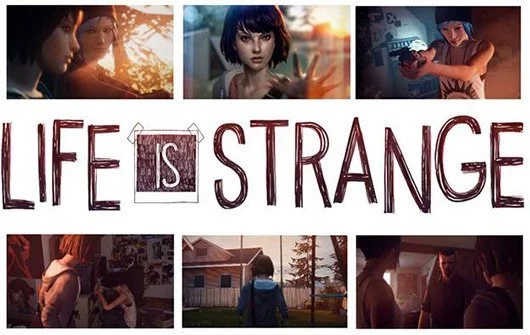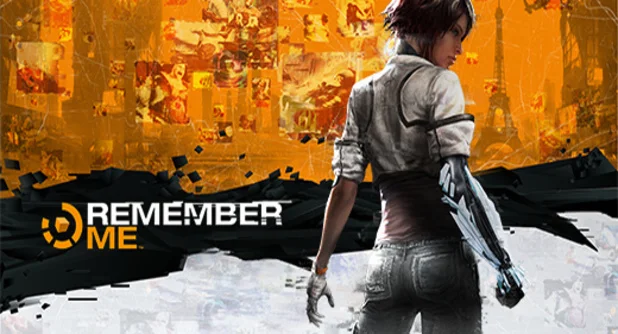
God, Dontnod.
I’m not mad.
I’m not even disappointed.
I expected this of you.
Note that this Deeper in the Pile is going to do something a little different, connecting the problems in Life is Strange with other flawed games, so this time there’s going to be some spoilers for not just Life Is Strange but also Remember Me.
 Remember Me is where I first learned about Dontnod, and where I formed my opinion that these are developers who have aspirations to dealing with big issues and important topics but they’re also fucking ninnies.
Remember Me is where I first learned about Dontnod, and where I formed my opinion that these are developers who have aspirations to dealing with big issues and important topics but they’re also fucking ninnies.
The core of Remember Me is meant to be a science-fiction story about the meaningful nature of memory and the intersection of humans and how memory determines personality. What you experience changes how you react to the future, kind of thing. This is shown in four puzzle segments in the game where you change how a person remembers an event happening, which then has a sudden and drastic effect on their current personality. In some cases, this drives them to suicide. In other cases, it turns them from a fully oppositional foe to a long-term friend.
Now setting aside how guff that can be, it’s an interesting idea and the puzzles were, themselves, pretty well executed. You’re effectively in a small room, able to scroll forward and backward through time, and you’re trying to find the right combination of interactions to get out. It’s a lot like picking a lock, but all the context is an event like a wife leaving her husband or a dying hospital room.
Now, Remember Me’s universe is one where people are already drawing their memories out. People can record or relive their memories, and there’s a single company with memory facilities that let you treat your memory like currency. Problem is, it’s a service that requires expensive upgrades, and poor people who use it often wind up trapped in their own memories, slowly becoming zombie-like hunter monsters. What’s more, this is in a time of great economic disparity, with wealthy people trapping the poor in ghettoes and abusing them for their labour, using memories as an opiate to maintain their control over them. There’s also the obliteration of your protagonist, Nillin, who has lost all of her memories, which means she now has to reconstruct her history with the help of her brother, a voice in her ear.
That brother turns out to be a supercomputer who is in fact in charge of maintaining and shipping the memories around. This is after he’s induced you to commit an act of actual literal terrorism by breaking a dam and killing thousands of people, in order to achieve his greater end of letting you kill him so he can release people’s memories to themselves. In Edge’s view, it’s better for everyone to have access to their memories, and therefore, he unleashes them with your help upon the populace. Note that there’s no real choice in this game – it’s a very linear success-fail kind of game.
Now if you’ve been paying attention, you might notice that Dontnod are trying to make memories do a lot of heavy lifting in this narrative. They’re economic disparity, they’re a drug, they’re alterations of personality, they’re a step towards the singularity. They’re the whole of the self, they’re what define us, they’re so painful that giving people the wrong memory can literally kill them.
The thing that struck me as I was playing Remember Me was how mashed together all the ideas were. They wanted memories to serve a role in the story, but a lot of these roles didn’t work when you did them at the same time. Are memories a form of economic oppression? Are memories an opiate of the masses? Are memories something you should never be deprived of? Are memories something that can kill you?
Now, when I wrote about Remember Me the first time I was reeling still from the death of a grandfather to Alzheimers, and a grandmother who had had a massive stroke that left her unable to form long sentences. I had had long conversations with friends, as I came to understand post-traumatic stress disorder and the way a garage door opening still affects me. I’m willing to accept that my opinions on Dontnod’s handling of the importance of memory and the impermanence of self is coloured by very dark experiences that not everyone will share.
That said, my opinion of it was what the fuck you fucking ninnies.
Dontnod spent a whole game – even using gameplay segments – to show how memories can control us, and destroy us, then used its dramatic finale to have a heroic character sacrifice themself in the name of forcing everyone to experience their memories even if they had chosen not to. There were people who had suffered massive trauma, people who had saved and scrimped to dump their memories away from themselves, and Edge had, from his own moral position, decided nope. Nope, those people don’t know what they need and acted in a way, painted about with revolution and grand moral meaning, to ‘force’ people to experience what they ‘should.’
This whole thing is framed as unambiguously good, by the way. The terrorist act with the dam is at least treated as a BIT suspect, but otherwise? Nah! You know better than those people about their memories, even though we know for a fact that there are people who will kill themselves when they get memories back.
I had echoes of Remember Me when I played Life is Strange. I kept being reminded of how that game was aware of concepts, and then didn’t… quite… get them. Life is Strange is a really aesthetically remarkable game, full of all these lovely spaces and highly detailed designs. The aesthetic space is used to its utmost, too – whether it’s the dozens of scrawled little messages and hidden meanings in all of Chloe’s surroundings, or the way you can look at so many identical posters of Rachel Amber’s missing notification. The games are stuffed to the brim with lots of things, like the way you can consistently save a character from random, meaningless humiliations, or the way that this game about time travel has so many numerous sections where you are completely bound to the slow, linear procession of a song. There’s a jumble of content in here, and if you remember my review’s content warning, you’d be forgiven for thinking that some of that jumble forms a coherent, dark whole, and not, say, a complete clusterfuck.
Life is Strange felt like Remember Me was handing in its first draft of narrative, that they hadn’t realised their ending and their story didn’t connect at all. The problem with Life is Strange is that it’s not just that its ending and story don’t connect – in Life is Strange, almost nothing feels like it meaningfully connects, because the game disconnects you from it – repeatedly. The ending is just the most gross exhibition of this sort of hamfisted, not-quite-getting-it style of storytelling.
We’re not going to talk about the ending of Life Is Strange today, though. If we want to talk about the ending of that game, we’ll need to go back in time to talk about the ending of another game.